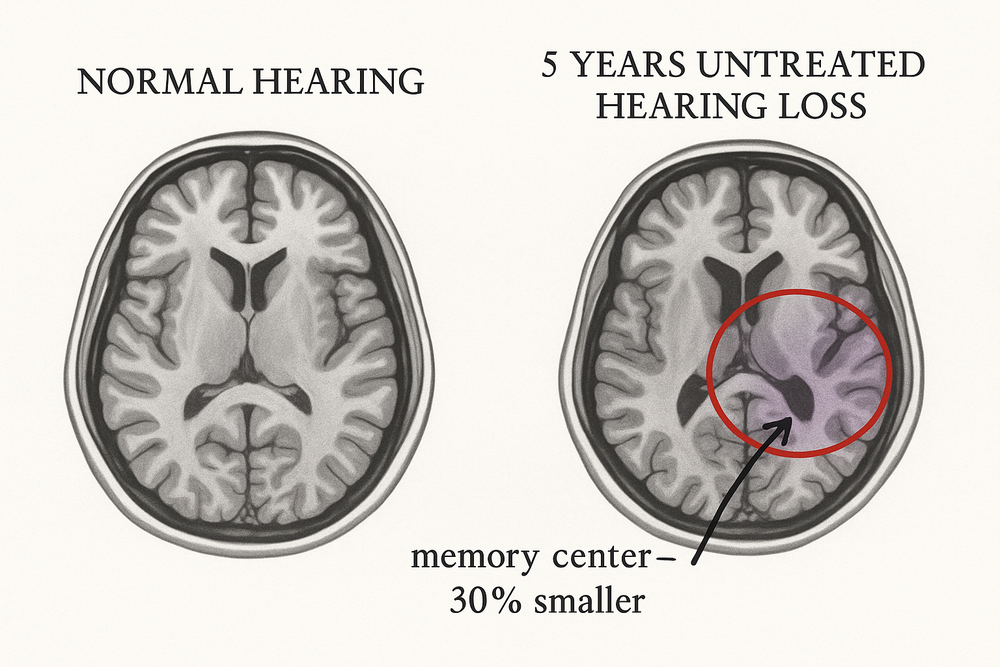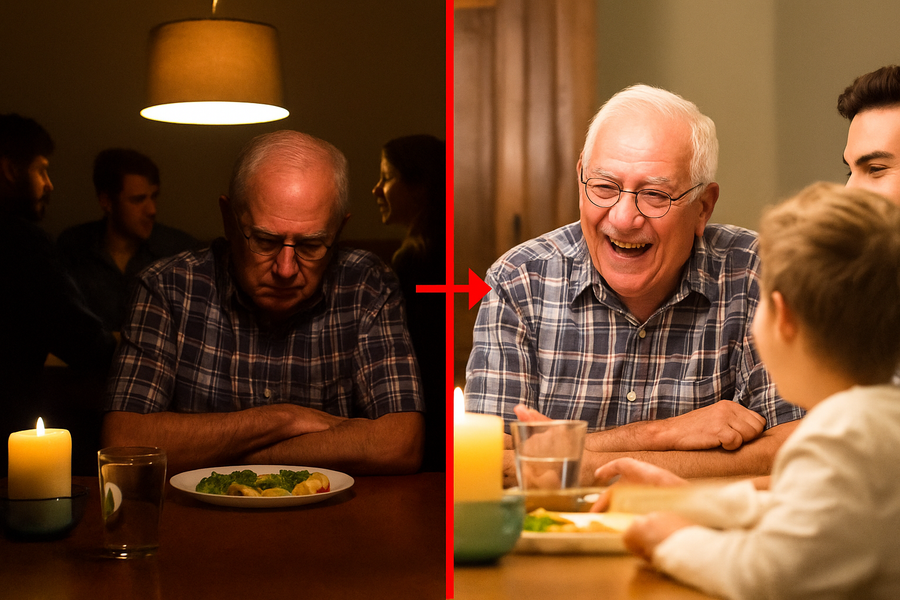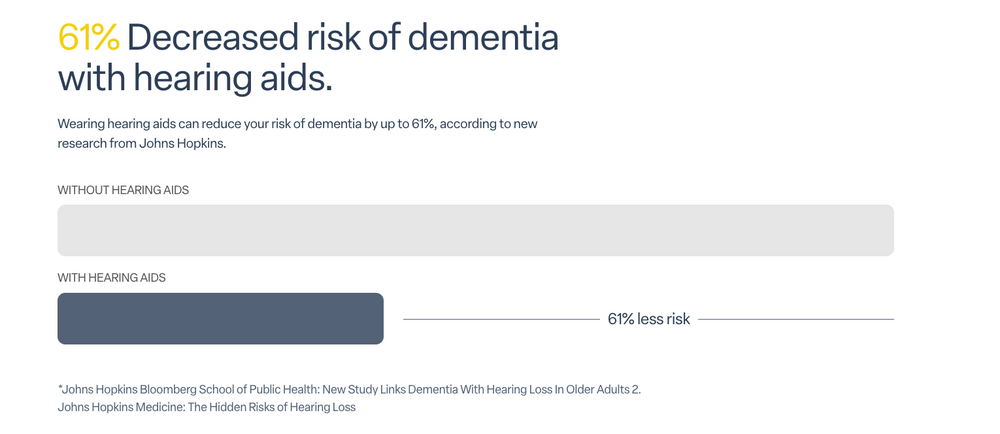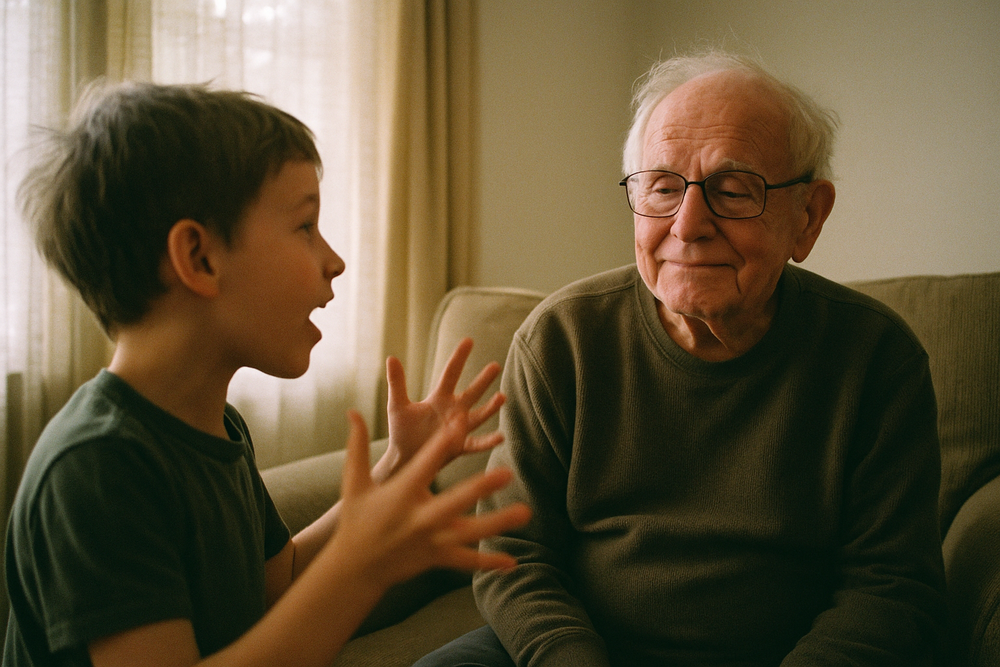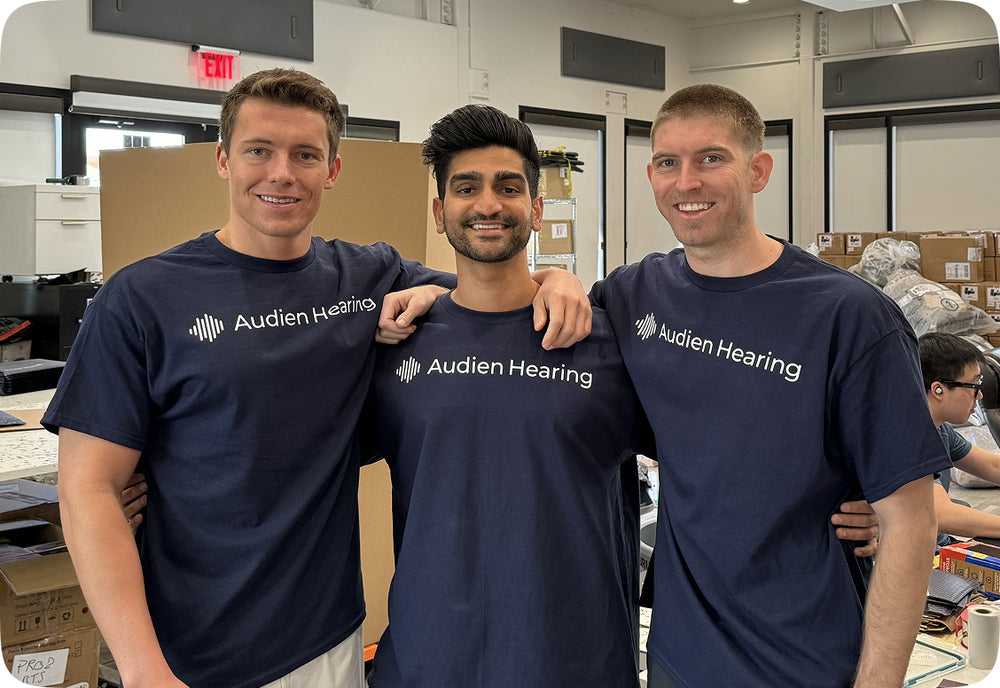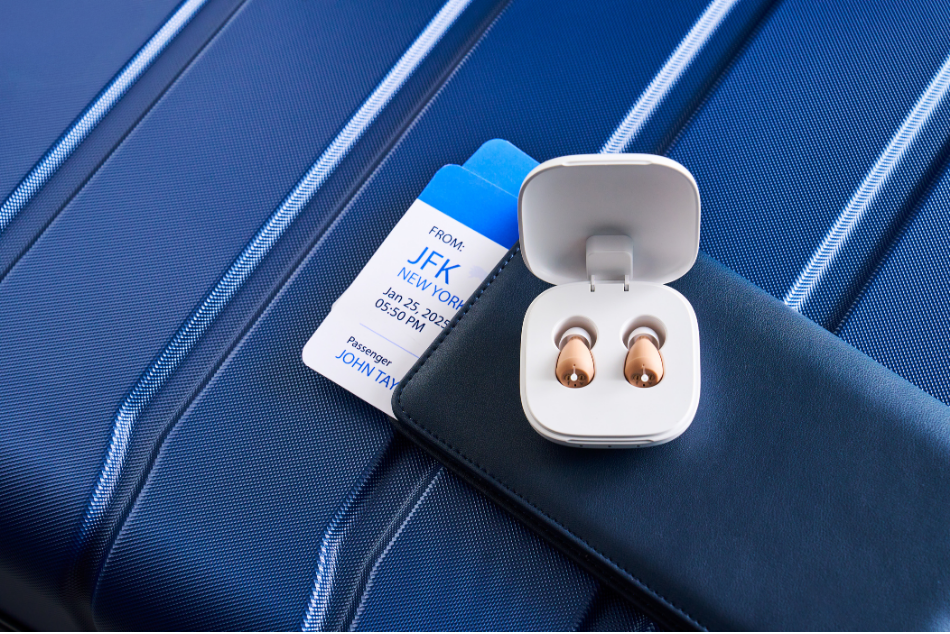I smiled and laughed along so they wouldn't know.
It was the third Christmas in a row where I could barely follow the conversation.
When my granddaughter told her favorite joke, I laughed when everyone else did — but I had no idea what was funny.
When conversations split into side discussions, I gave up trying to follow.
If this sounds familiar, you know the exhaustion of pretending.
The loneliness of being surrounded by voices you can't quite catch.
The growing fear that you're becoming a spectator in your own life.
What I didn't know then — what no doctor had told me — was that my brain was literally shrinking from lack of sound.
And yours might be too.
